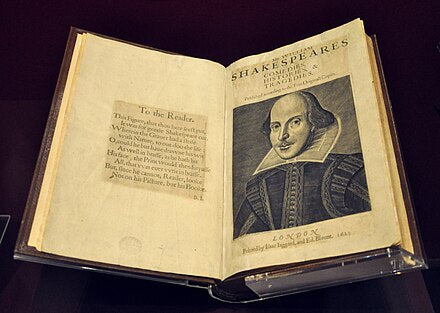On September 6th, we honor two monumental events in the literary world: the birth of William Shakespeare and the publishing of his First Folio in 1623.
Both events share the same date, underscoring the timeless relevance of the Bard's contributions to art, literature, and our understanding of the human condition. In this spirit, we delve into Shakespeare's nuanced perspectives on time and art, examining how these notions resonate with a modern timepiece aptly named 'The Present.'
Shakespeare's insights into time are as riveting as they are instructive. In "Macbeth," he writes, "Time and the hour run through the roughest day," a poignant reminder of time's relentless march. Yet, Shakespeare also knew the subjectivity of time, remarking in "Romeo and Juliet," "Time is slow for those who wait." These lines aren't mere poetic flourishes; they capture essential truths about our relationship with time, a relationship increasingly strained in our fast-paced world.
Enter 'The Present,' a unique timepiece that radically rethinks our engagement with time. Rather than ticking away the minutes and hours, it marks the seasons, aligning more closely with natural, astronomical time than mechanical time. Its year-long rotation encourages a slower, more contemplative interaction with time, inviting us to see ourselves as part of a greater whole.
This brings us to Hamlet's famous assertion that the purpose of art is to "hold, as 'twere, the mirror up to nature." 'The Present' does precisely this. By aligning our sense of time with the natural world, we must reconsider how we perceive time and our place within the universe. It serves as a contemporary response to Shakespeare's age-old wisdom, urging us to engage more mindfully with our environment and, by extension, ourselves.
Shakespeare's works have survived and thrived because they offer timeless insights into human nature and the world. As we commemorate his birth and the publication of the First Folio, we are reminded of the enduring power of art to educate, inspire, and reflect the complexities of our existence. 'The Present' takes this mantle seriously, inviting us to experience time in a way that enriches our understanding of the natural world and, ultimately, ourselves.
So, on this dual anniversary, let's pause to reflect on the incredible legacy of William Shakespeare and how his understanding of time and art continues to inspire and educate us today.


Leave a comment: